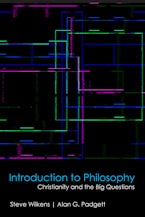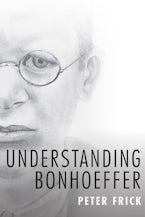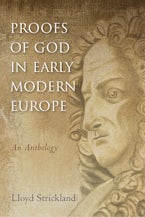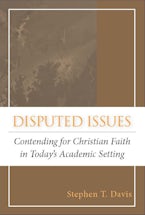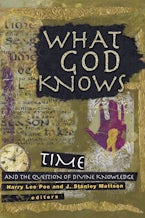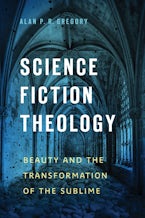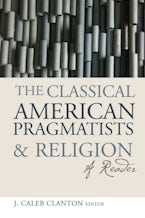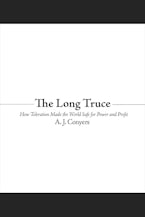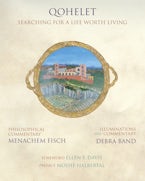
Qohelet
Searching for a Life Worth Living
by Debra Band and Menachem Fisch
Imprint: Baylor University Press
Sales Date: 2023-06-15
208 Pages, 8.00 x 10.00 x 0.86 in
How to live a life of wisdom and fulfillment in a far-from-perfect world? Philosopher Menachem Fisch and artist Debra Band together probe Qohelet's inquiry into the value of life "under the sun" in this brilliant work--the first illuminated manuscript of the entire biblical text, the first philosophical analysis tracing the coherent path of this biblical thinker's full argument. Whereas modern readers influenced by the famous declaration "vanity, vanity, all is vanity" from the 1611 King James Bible have commonly understood that Qohelet found only futility and hopelessness in human life, Fisch restores the literal meaning, "vapor," to Qohelet's key word, hevel, with implications that reveal Qohelet's path to wisdom and even serenity. Through linguistic precision and careful unfolding of the book's philosophical argument, Fisch uncovers Qohelet's twin concerns: life is short, and situated as we are, far below the heavens, we can never be assured of comprehending our world, or understanding divine will and intent. He reveals Qohelet's understanding that since we can never fully predict or understand our fortunes or the heritage we leave behind us, the best we can do is to live our lives fully, relating to others attentively, always aware of the limits of human life.
In her glowing, immersive, and discursive illuminated paintings of the entire text, Band imagines Qohelet's teachings, employing the grandest of palaces, the Alhambra, as the central metaphor for the beauty and impermanence of human life and accomplishments. She fills its halls and gardens with often surprising imagery, symbolism, and related poetry, creating a visual midrash that reveals the relationship of Qohelet's thought to other biblical texts and Jewish lore and its reverberations across the centuries and cultures of Western civilization, from ancient Israel to today's America. Each illuminated page is complemented by lucid commentary explaining its full meaning. Renowned scholars Ellen F. Davis and Moshe Halbertal crown the work with a penetrating foreword and preface.
"Illuminated manuscripts have a rich tradition to which this gem adds creatively. Not only does Debra Band's exquisite micrography, calligraphy, and artwork invite us to marinate in and meditate on Qohelet's suggestive composition, Menachem Fisch adds a unique and penetrating philosophical analysis. This work takes us from the ancient world of the Bible through medieval traditions of illumination and into a reading of Qohelet as a harbinger of post-modern thinking."--Peter A. Pettit, Teaching Pastor, St. Paul Lutheran Church, Davenport, Iowa
"'Vanity of vanities, all is vanity,' wrote the mysterious author of the biblical Qohelet--Ecclesiastes, in English, from the Greek. 'There is nothing new under the sun.' For generations, the meaning of this haunting outlier text seemed clear and even merciless: in its endless cycling, nothing in the cosmos lasts, so nothing matters. Even if God is real, human life is in the end unreal and can have no real purpose. Resignation is the only valid response: at best, 'living for the moment;' at worst, existential despair. But what if there were something new under the sun? In this fresh approach to Qohelet, philosopher Menachem Fisch and scholar-artist Debra Band radically re-vision a text whose interpretation was 'settled.' Through exciting exposition that ranges from the history of rabbinical thought to analytical philosophy to the pain of personal loss, and illumined by Band's glowing paintings, the authors return us to the original Hebrew word on which Qohelet pivots: hevel. When hevel is not read 'figuratively' but is restored to its literal meaning as 'vapor' or 'mist,' an unexpected theology is revealed. What if the text were never a meditation on absurdity after all, but instead 'a vivid portrayal of the limits of human knowledge?' These limits can inspire us to return to our deepest human challenge: how should we live? Fisch and Band show how we can take up the question again in fascination--and even more, in hope. An unforgettable book."--Kimberley C. Patton, Professor of the Comparative and Historical Study of Religion, Harvard Divinity School
Foreword by Ellen F. Davis
Preface by Moshe Halbertal
Introduction by Menachem Fisch: Making Sense of Qohelet
Introduction by Debra Band: Approaching the Book of Qohelet
The Illuminations
Frontispiece
Chapter One
Chapter Two
Chapter Three
Chapter Four
Chapter Five
Chapter Six
Chapter Seven
Chapter Eight
Chapter Nine
Chapter Ten
Chapter Eleven
Chapter Twelve
Chapter Commentary Materials
1
Introduction: Setting the Stage
Commentaries on the Illuminations
2
Introduction: Dashed Dreams of a Lasting Achievement
Commentaries on the Illuminations
3
Introduction: Qohelet’s Great Turning Point
Commentaries on the Illuminations
4
Introduction: The Politics of Cooperation
Commentaries on the Illuminations
5
Introduction: Foolishness Multiplied: The Religious Dimension
Commentaries on the Illuminations
6
Introduction: The Futility of Hindsight
Commentary on the Illuminations
7
Introduction: Breaching the Limits of Self-Critique
Commentaries on the Illuminations
8
Introduction: Knowing the Limits of One’s Strength
Commentaries on the Illuminations
9
Introduction: The Case against Hedonism
Commentaries on the Illuminations
10
Introduction: A Fool’s Dystopia
Commentaries on the Illuminations
11
Introduction: The Beginning of an Optimistic End
Commentary on the Illuminations
12
Introduction: When All Is Said and Done
Commentaries on the Illuminations
Afterword by Menachem Fisch
Mysteries Dispelled: Qohelet in Biblical and Liturgical Context
Key to Bible Translation Abbreviations
Debra Band draws upon her love of both the manuscript arts and the Jewish textual tradition in her acclaimed illuminated manuscripts. She is the author and illuminator of The Song of Songs: The Honeybee in the Garden (JPS, 2005), I Will Wake the Dawn: Illuminated Psalms (with Arnold J. Band) (JPS, 2007), Arise! Arise! Deborah, Ruth and Hannah (with Arnold J. Band) (Honeybee in the Garden, 2012), and Kabbalat Shabbat: The Grand Unification (with Raymond P. Scheindlin) (Honeybee in the Garden, 2016), among other works. Her paintings have been widely exhibited across the United States and Canada. She resides in Potomac, Maryland, with her husband, Michael Diamond, MD, and menagerie.
Menachem Fisch is Joseph and Ceil Mazer Professor Emeritus of History and Philosophy of Science at Tel Aviv University, TAU codirector of the Frankfurt-Tel Aviv Center for Religious and Interreligious Studies, and senior fellow of the Goethe University Frankfurt’s Forschungskolleg Humanwissenschaften. He is author of The View from Within: Normativity and the Limits of Self-Criticism (with Y. Benbaji) (Notre Dame, 2011), Creatively Undecided: Toward a History and Philosophy of Scientific Agency (Chicago, 2017), and Covenant of Confrontation: A Study of Non-Submissive Religiosity in Rabbinic Literature (Hebrew) (Bar-Ilan, 2019).
Of the making of books on Ecclesiastes-Qohelet there is seemingly no end, and yet this one truly stands out. Debra Band, a renowned visual artist, and Menachem Fisch, a distinguished philosopher, together explore one of Judaism's--and indeed, the Western world's--most provocative and elusive books and offer us new ways of reading the text and imagining the experiences and struggles it evokes. Whether Ecclesiastes is relatively new territory for you or whether you've spent decades studying and puzzling over it, you will undoubtedly find new insight and inspiration in this remarkable book. Band and Fisch offer us a feast for the eyes, the mind, and the heart.
~Rabbi Shai Held, President and Dean, the Hadar Institute
This wonderful book offers a biblical, philosophical, artistic, and (ultimately) theological account of one of the deep treasures of wisdom in Scripture, Ecclesiastes. Seeing the tension between the absolute timeless norms of divine expectation and the inherent transience of all human reckoning and understanding in Qohelet's account, Fisch offers us a deeply reflective review of the book which takes both the urgent divine call and the limits of human knowing just as seriously. Only a philosopher and text scholar of Fisch's extraordinary calibre could offer so rich a commentary and, moreover, do so beautifully in partnership with Debra Band's art and calligraphy.
~Tom Greggs, Marischal Chair (1616) and Head of Divinity, University of Aberdeen
This is an exquisite combination of pictorial imagination with abstract reflections of the most philosophical book of the Hebrew Bible, penned by two experts in the respective domains. Menachem Fisch's fresh interpretation of the ultimate message of Ecclesiastes as a portrayal of a transient--in lieu of a futile--world, is a permanent contribution that will guide any serious reader of the book in the future. A more balanced attitude to the magnificent worldview that pretends to reflect a king's experience of life, decodes an original type of ancient Jewish religiosity, which has some more optimistic valences than previously assumed.
~Moshe Idel, Max Cooper Professor Emeritus in Jewish Thought at the Hebrew University, Jerusalem, and Senior Researcher at the Shalom Hartman Institute
If our life seems to go nowhere, our enjoyment of things seems shallow, our understanding of things seems thin, our attempt to pursue justice seems to get nowhere, where do we go? We could always read Ecclesiastes, with this illuminating commentary. Among the many studies of the book, Qohelet is like no other in offering two Jewish perspectives, a philosopher's and an artist's, and incorporating a wondrous profile of artwork with which one could sit for a long time.
~John Goldingay, Senior Professor, Fuller Theological Seminary
Qohelet: Searching for a Life Worth Living is an important contribution to philosophical theology, which rereads Qohelet through a philosophical lens. This book corrects scholarly misperceptions of Qohelet as a strange outlier in the Bible and in ancient Judaism and instead retells the story of its relevance western thought. The contribution of Qohelet as an important voice for reflective and philosophical thinking in ancient Judaism was not lost on the Rabbis. Moreover, this book demonstrates that the voice of Qohelet can now be heard in conversation with the history of western philosophical reflections. Fisch and Band weave philosophical commentary, rabbinic reflection, and artistic illumination together into a new inheritance of Qohelet.
~Hindy Najman, Oriel and Laing Professor of the Interpretation of Holy Scripture, University of Oxford
Band and Fisch's Qohelet commentary is a feast for both eyes and mind. Qohelet, roughly a contemporary of Aristotle, jumps off the page into the interstices of our own struggle to make sense of how God wants us to understand ourselves and how we had best conduct our lives. These two religious Jews let Qohelet speak from the Jewish canon, not about or on behalf of Judaism but about the human condition. The calligraphy is clear yet absorbing in both Hebrew and English with the Hebrew fully vocalized and with Masoretic cantillation marks. Qohelet urges us to enjoy life's pleasures fully, being ever mindful of their evanescence in the face of inevitable death.
~Ellen T. Charry, Professor of Systematic Theology, Princeton Theological Seminary
This inventive, probing, and thought-provoking volume argues that the biblical book of Qohelet (Ecclesiastes) is a singly authored composition propounding a coherent philosophy of life, one that is highly pertinent today. The accompanying artwork, drawing imaginatively and learnedly upon Jewish and non-Jewish traditions alike, enriches the reader's appreciation of this enigmatic ancient text.
~Jon D. Levenson, Albert A. List Professor of Jewish Studies, Harvard Divinity School
Qohelet is the one book in the Hebrew Bible that is essentially a philosophic meditation, written like all genuine philosophy in the first person. Only a genuine philosopher like Menachem Fisch could enter the mind of this unique biblical author by making the author's questions his own. Debra Band's illuminations and commentary beautifully complement Fisch's meditation in Qohelet.
~David Novak, J. Richard and Dorothy Shiff Professor of Jewish Studies and Philosophy, University of Toronto
Debra Band's illuminations in Qohelet: Searching for a Life Worth Living illustrate her outstanding ability to marry art with text. Her intriguing paintings balance the rich commentary in an elegant embrace. Her vision rests upon Menachem Fisch's accompanying analysis of the biblical text. Band's artistic view illuminates the book and sets forth in a compelling visual narrative the words of both biblical text and the other sources upon which the paintings draw. We are fortunate to have such a wonderful display of art interpreting the written word.
~Laura Kruger, Curator Emerita, Dr. Bernard Heller Museum, Hebrew Union College, New York
What a rereading of this fascinating scripture! Menachem Fisch's decades of study, in which he has worked to combine rigorous and self-critical philosophy, immersion in Rabbinic Judaism, and perceptive attention to life now, have finally been distilled into this profound interpretation of the Book of Ecclesiastes. The portrayal of types of foolishness ring uncomfortably true, and Qoheleth's positive wisdom is something each of us needs to learn--for the sake of our personal, political, economic, intellectual, and religious lives. Not only that: because of Debra Band's accompanying visual illuminations, this is a new seeing as well as a new reading.
~David F. Ford, Regius Professor of Divinity Emeritus, University of Cambridge
Fisch’s philosophy of uncertainty and humility dovetails meaningfully with Kohelet.
~Hayyim J. Angel, Tradition: A Journal of Orthodox Jewish Thought
Upon opening the pages of Qohelet: Searching for a Life Worth Living, readers will first encounter unexpected beauty. From the intricate illuminations to the impeccably laid out commentary, Qohelet is nothing less than a masterpiece. But upon closer inspection, this work is a complex argument engaging with one of the most debated books in the Hebrew Bible, even claiming for it a new voice--one that is ready to argue with past reception and interpretation of this complicated text.
~Allison Garde, Literature & Theology
This compelling and creative complement to the existing commentaries on Qohelet will resonate with scholars on this book, but also with readers more generally interested in Bible and art, philosophical work and Jewish thought. The book ends with a four-page bibliography, an index for authors and keywords.
~Samuel Hildebrandt, Journal for the Study of the Old Testament
- Eric Hoffer Book Award-Spiritual

